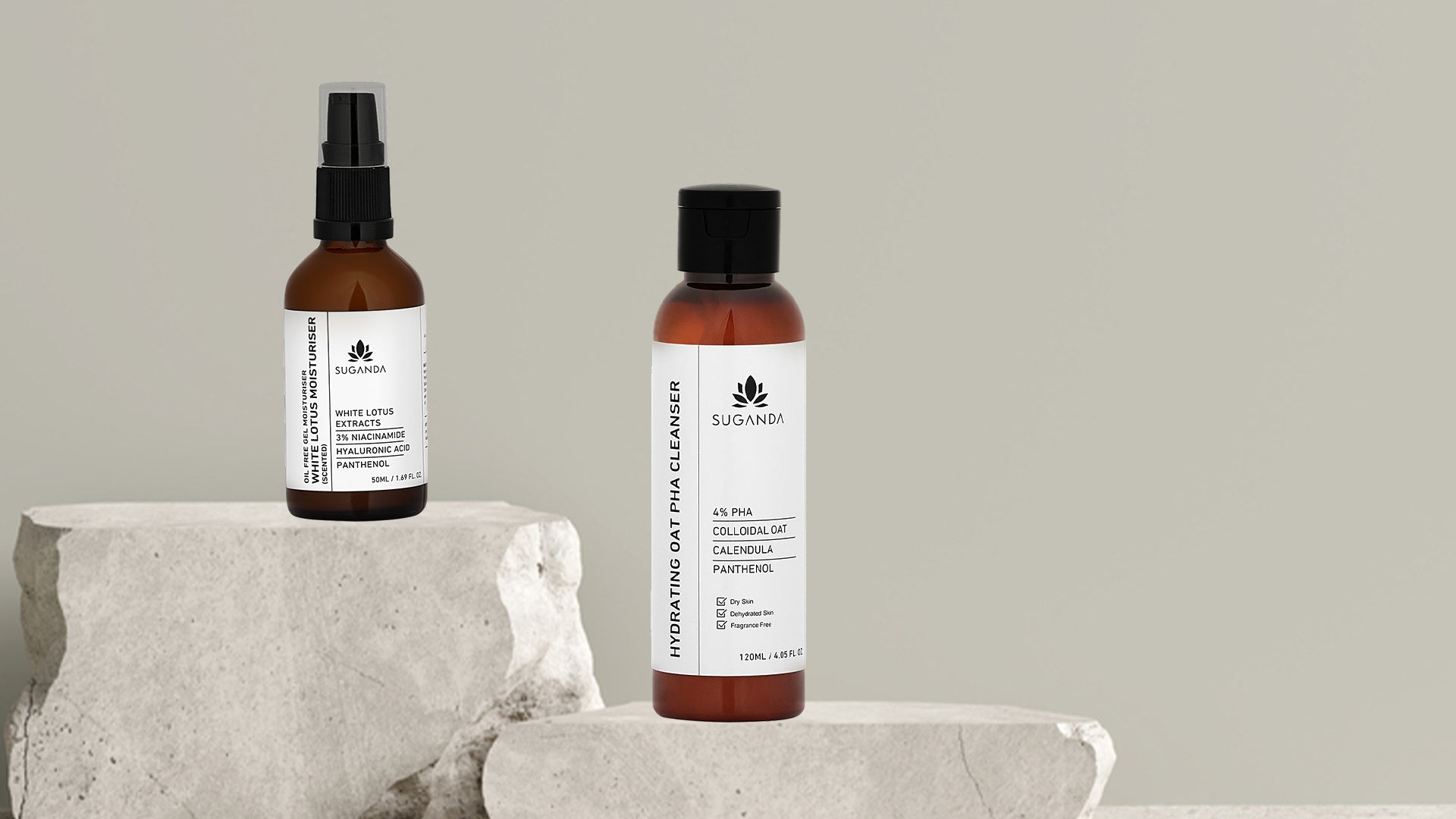We long for summers with chilling colds in December and January, isn't it?
Once summers hit their peak temperatures, the real struggle begins. Apart from sweat and bacteria on the skin, we fret about which skincare works the best to stay fresh all day. In summers, our skin produces more sebum than usual and causes breakouts which tend to be more with oily skin.
So what could be the solution to these perplexing questions? Should you stop using skincare to avoid shine? Or should you apply more products to combat the issues? Or should you continue with your existing skincare products?
Here is a quick guide to answer all your questions. Firstly, one should mind that irrespective of the season, the skincare steps do not change—cleansing, toning, moisturising, and finally protecting your skin from UV rays.
1) Cleansing
The urge to wash your face frequently in summers is something that everyone could relate to, but it is important to note that frequent washes could disrupt skin moisture content and cause the skin to produce more sebum to balance the oil. Make sure that you use a gentle cleanser not more than twice a day. Hydrating Oat Cleanser best suits dry skin because dry skin mildly causes acne during summers. Dry skin is usually prone to sensitiveness. The cleanser contains colloidal oat that reduces inflammation and gently exfoliates the skin, which is essential during summers to remove the bacteria piled up on the skin.
2)Moisturiser
This summer, consider dropping the heavy creams and lotions in favour of a lighter moisturiser. Warmer weather necessitates using a non-greasy, water-based moisturiser to draw excess oil from pores. Your skin requires the best skincare moisturiser to replenish moisture lost due to the extreme heat and prevent summer rashes, itchiness, and skin irritation. A few spritzes of facial mist add another layer of proper hydration.
Consider using a White Lotus Moisturiser that controls oil with the help of niacinamide and provides adequate hydration with hyaluronic acid, which is the best moisturising agent to hold on hydration in cells.
3)protection
protection is a must! You may apply a ton of products that match your skin type and are totally free of parabens and alcohol, but it is essential to shield your skin from harmful UV rays. Our skin's outer layer contains a melanin pigment that helps prevent sun rays. However, with excessive exposure to the sun, the melanin starts to produce more, causing the skin to darken and shed. Thus, sunscreen comes into play to protect the skin cells from UV rays and control melanin production. Paula's Choice Resist, a mineral-based formula with a light tint that protects skin from sun damage and strengthens it with cutting-edge antioxidants. You can even choose moisturisers with SPF, but it is advisable to select products that work on a particular skin issue for better results.
Apart from the key skincare products, some products are usually left behind, such as oils and serums having a misconception that adding too many products could have adverse effects. When incorporated right, the products work efficiently to address the issues they are developed for.
One such oil is rosehip oil. Rosehip oil contains high concentrations of omega-3 fatty acids that help enhance the skin barrier. For people bearing dry skin or to help with the ageing process, this serum works excellent as it boosts the collagen(responsible for skin's elasticity) and prevents sun damage.
Avoid products containing active ingredients as they may aggravate the skin, especially in summers.
References:
“Efficacy of the combined use of a mild foaming cleanser and moisturiser for the care of infant skin”,Skin Care Products Research Laboratories, Kao Corporation, Tokyo,2017 Oct 3,
https://www.ncbi.nlm.nih.gov/pmc/articles/PMC5633290/
Dr. M.S. Latha,”Sunscreening Agents”,2013 Jan,https://www.ncbi.nlm.nih.gov/pmc/articles/PMC3543289/







 +91 9347578980
+91 9347578980